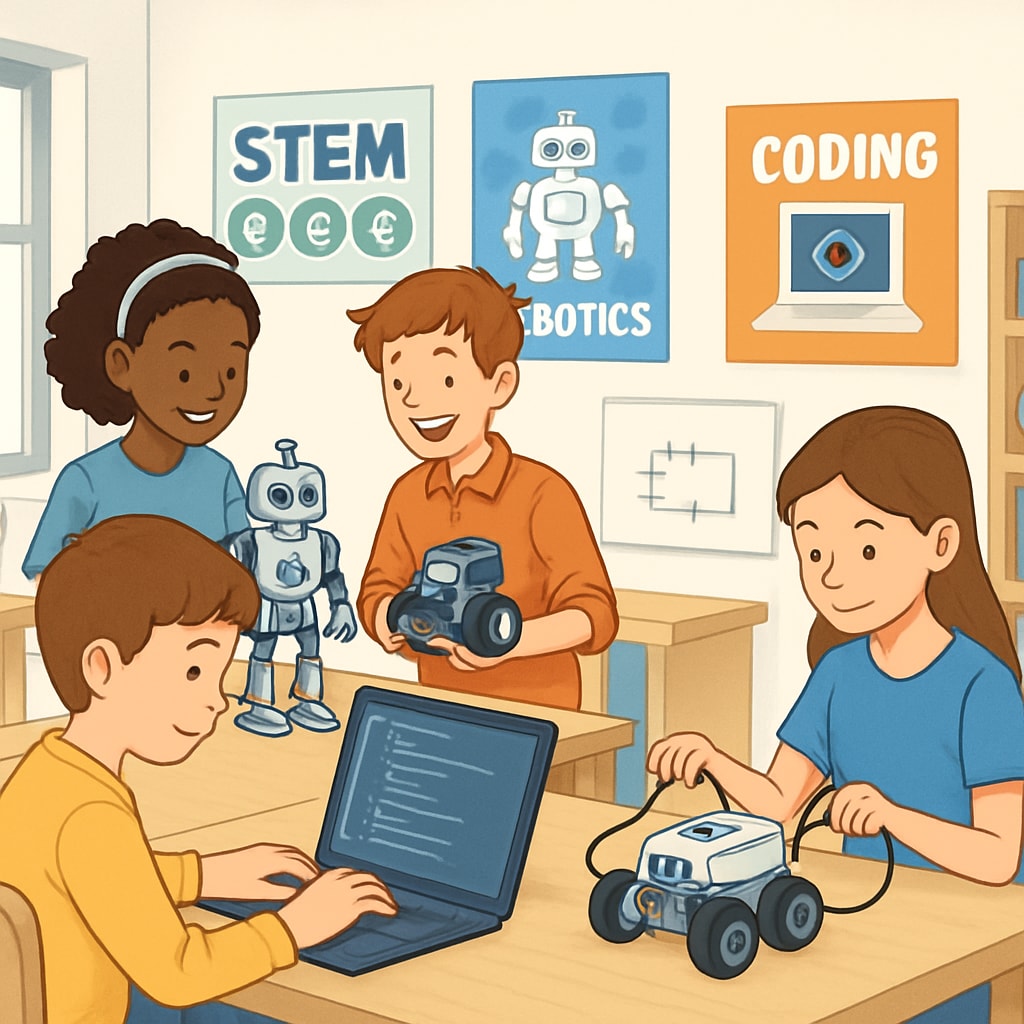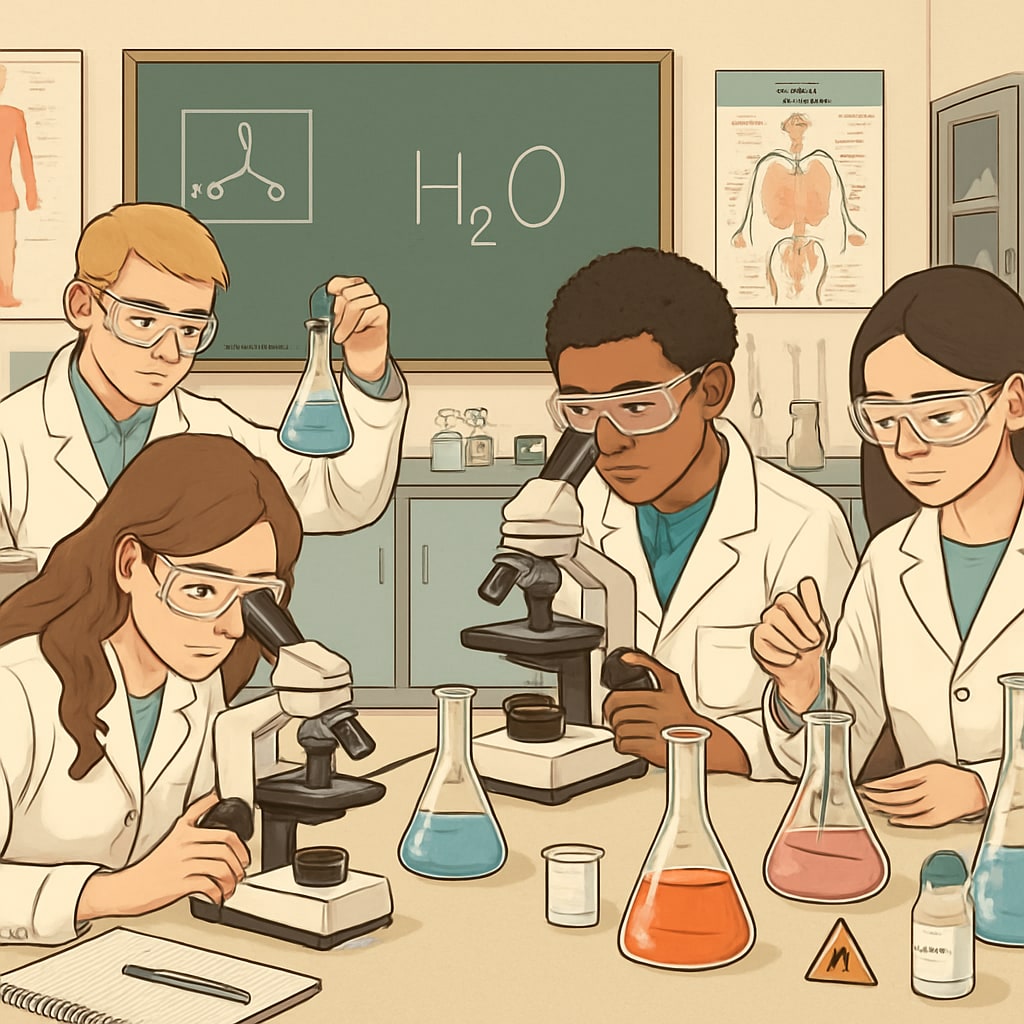In today’s rapidly evolving global landscape, the necessity for U.S. high school curriculum reform has never been more apparent. The current system, heavily influenced by traditional liberal arts education, struggles to equip students with the practical skills needed to thrive in the 21st century. By shifting focus toward STEM (Science, Technology, Engineering, Mathematics), philosophy, rhetoric, and emotional intelligence, the United States can better prepare its youth for international competition and innovation.

Why the U.S. High School Curriculum Needs Reform
The traditional liberal arts-focused curriculum, while valuable in fostering creativity and critical thinking, has limitations in addressing practical challenges faced by graduates. For example, according to Britannica, liberal arts education emphasizes broad knowledge rather than specialized expertise, leaving gaps in STEM proficiency and technological preparedness. As a result, American students often lag behind their international peers in STEM fields, including mathematics, engineering, and computer science.
Furthermore, the global economy increasingly demands workers skilled in technology and interdisciplinary problem-solving. Reforming high school curricula to prioritize STEM subjects, along with philosophy and emotional intelligence, could help students adapt to these demands. In addition, rhetoric (the art of effective communication) is essential for leadership roles, making it a vital addition to modern education.
The Role of STEM in Tomorrow’s Workforce
STEM education is the cornerstone of innovation. Fields like artificial intelligence, biotechnology, and renewable energy require a workforce equipped with advanced technical skills. According to Wikipedia, STEM programs also foster analytical thinking and collaborative problem-solving, qualities essential for addressing global challenges.
By integrating STEM into the core curriculum, schools can prepare students for high-paying careers in emerging industries. Moreover, interdisciplinary STEM programs that include elements of philosophy and rhetoric can nurture well-rounded individuals capable of ethical decision-making and persuasive communication.

Balancing Practical and Emotional Skills
While technical skills are vital, emotional intelligence (EI) plays an equally important role in personal and professional success. EI encompasses self-awareness, empathy, and interpersonal communication—skills that are often overlooked in traditional curricula. By incorporating emotional intelligence training alongside STEM subjects, schools can cultivate students who are not only competent but also compassionate and adaptable.
Philosophy and ethics further complement this balance, helping students navigate moral dilemmas in fields like artificial intelligence and data privacy. These subjects encourage students to think critically about the broader implications of technological advancements, fostering responsible innovation. Combined with rhetoric, they also enhance students’ ability to articulate ideas effectively, a skill crucial for leadership and teamwork.
Streamlining Liberal Arts for Modern Needs
While liberal arts education has its merits, a modernized approach would involve streamlining these subjects to focus on their most practical elements. For example, instead of broad surveys of art or literature, schools could offer targeted courses in media literacy, communication strategies, or cultural studies relevant to the digital age.
This shift would create space for subjects like STEM, philosophy, rhetoric, and emotional intelligence without completely abandoning the liberal arts. The goal is not to diminish creativity but to align education with contemporary demands, ensuring students have both technical expertise and the ability to think critically and ethically.
The Path Forward
To implement these reforms, collaboration between educators, policymakers, and industry leaders is essential. Schools should invest in teacher training programs for STEM and emotional intelligence education, while governments should provide funding for updated resources and equipment. Additionally, curriculum designers must work to integrate interdisciplinary approaches, ensuring subjects like philosophy and rhetoric complement STEM education.
As the world becomes increasingly interconnected and technology-driven, the need for a balanced, practical, and forward-thinking education system is undeniable. By prioritizing STEM, philosophy, rhetoric, and emotional intelligence while streamlining liberal arts, the United States can prepare its students to face 21st-century challenges head-on.
Readability guidance: Use concise paragraphs, integrate lists to summarize key points, and include transitional phrases like “however,” “therefore,” and “as a result” for smooth flow. Maintain an active voice and avoid excessive passive constructions.


